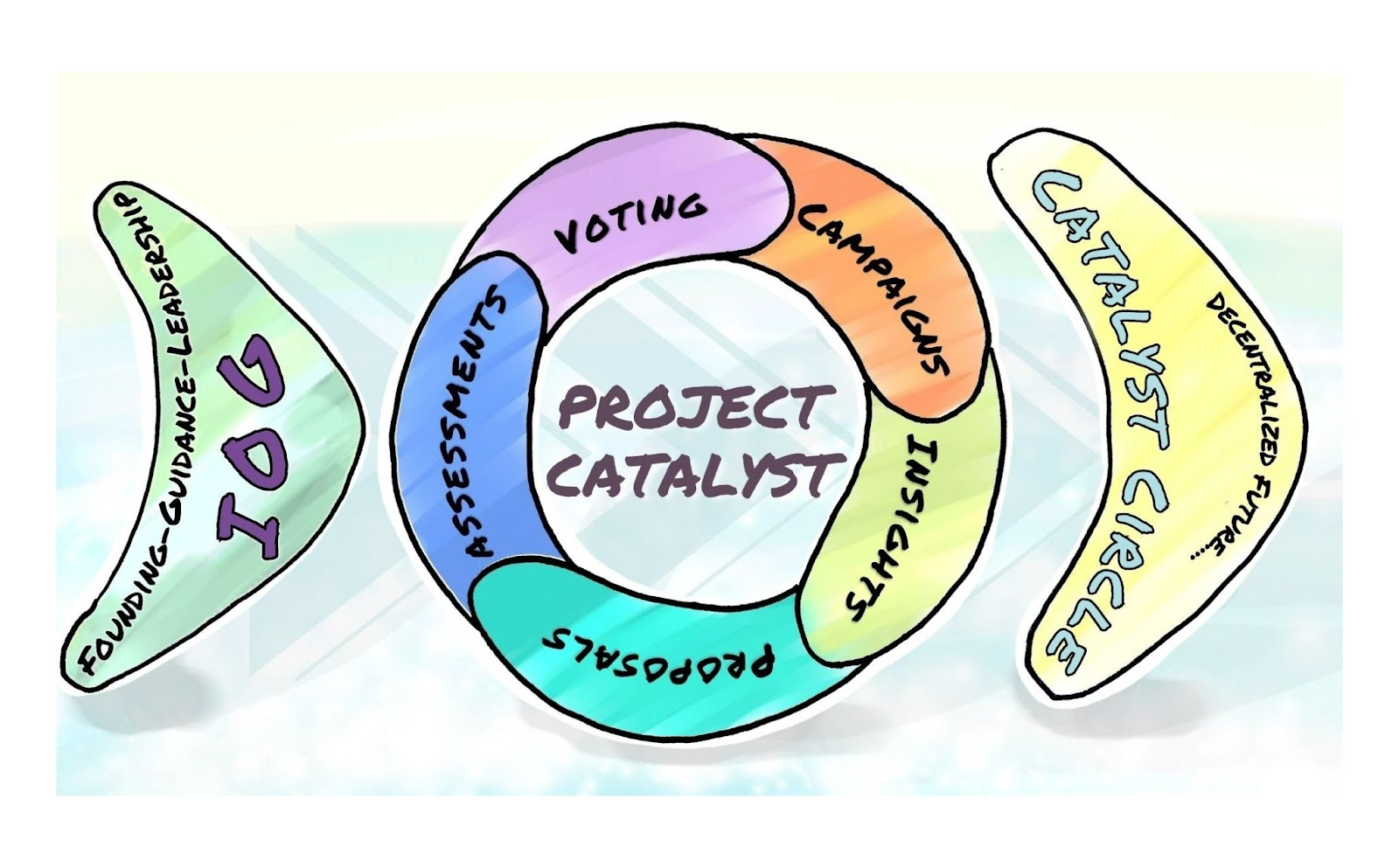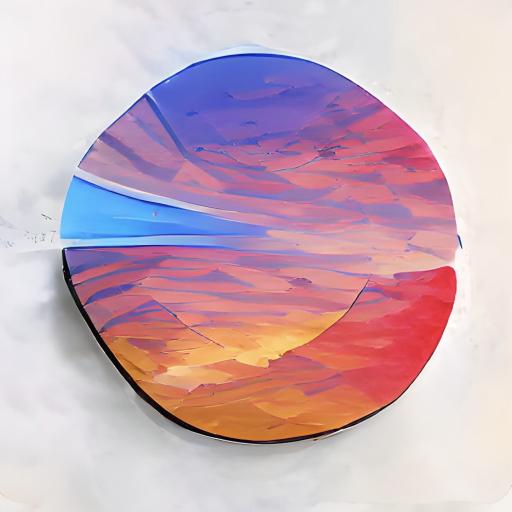For curious minds bent on discovery and innovation, few things beat an old fashioned experiment… except, perhaps, 1000 experiments!
Thomas Edison is famous for inventing the lightbulb. But he conducted more than 1000 lightbulb experiments that failed, before one finally succeeded. When asked by a reporter, “How did it feel to fail 1000 times?”, Edison simply replied, “I didn’t fail 1,000 times. The light bulb was an invention with 1,000 steps.”
Project Catalyst is a global experiment for the Cardano blockchain network. It is engaging thousands of curious minds in a multi-round experiment in Decentralized Autonomous Organization. The big question being asked is:
How can humans organize innovation and work to sustain a global enterprise (Cardano) in a DECENTRALIZED way? (with no one individual or committee steering the ship!?!)
If you are new to the Cardano ecosystem, or to Project Catalyst, welcome! Likewise, if you have been involved as an observer, or as a voter, but are interested in a clearer view of the process that leads to the Project Catalyst ballot box, this article is for you.
The shape of the Project Catalyst experiment is a “round”, and each round is numbered. They are also called “Funds” because each round is funded by a release of ADA from the Cardano Treasury. Project Catalyst’s “Fund 2” launched in September 2020 with a $250K budget. The budget grew in each subsequent round, leading to awarding over $24M to over 900 projects just 20 months later. Budget is only one of the many adjustable parameters in the Project Catalyst Experiment - each round has had other adjustments, small and large, as the community learns what works, and what remains to be explored.
Here is the overall framework of a “Round” of Project Catalyst:

Campaigns - Challenges
Campaigns define challenges in the Cardano ecosystem. A Campaign lays out an explanation of the challenge, and may give examples of the types of solutions that could meet the need. They are an invitation to the community to put on their thinking caps, reach out to their friends with relevant expertise, and to think up the next great “lightbulb” innovation. The Campaigns themselves are defined by the community - but more on that later!
Insight Sharing
When it’s time to start a new “round” of Project Catalyst, the first step is a week or two spent on “insight sharing”. During this time, anyone with an idea to hatch is welcome to put it in the “incubator” on Ideascale. There’s nothing at stake - no winners or losers. It’s simply a time to log ideas under the various Campaigns, and see what synergies arise.
- If you have an idea, but know you really need a team, you might enter your idea and express your interest in finding co-conspirators.
- If you have no interest in executing an idea yourself, you may wish to launch it into the air on Ideascale – a flare of inspiration that may light up someone else with the time and energy to execute on your brainstorm.
- If you know you want to propose a real idea and execute it yourself, you might start by sharing it with the community during Insight Sharing. Positive comments might affirm that you are on the right track. Likewise, constructive questions can help you tighten up your idea before the next phase.
Proposals - Draft/Finalize
During a period of several weeks, anyone with an idea about how to solve one of the Campaign Challenges can submit a proposal that explains the idea, and request funding. This stage takes place in two phases: Draft and Finalize.
In the Draft stage, you may enter an idea at any stage of readiness. Commenting is still open, and proposers may still receive feedback from the community that helps improve their proposal. Another common scenario is that people with similar ideas or complimentary skills may join forces as co-proposers under one strong proposal, rather than competing to do the same thing.
In the Finalize stage, new proposals are not accepted, but proposers have a few days to polish and edit their drafts. A great idea is one thing, but a clear explanation, budget, and plan for execution are equally important when requesting funding from any source!
It may be newsworthy to note that proposals cover a wide range of things - not just technical/coding work! Funded proposals here at Lido Nation show some of the range:
- Under the campaign “Grow Africa, Grow Cardano”, we were funded to translate our articles into Swahili. Similarly, under the “Grow Latin America” campaign, we were funded for Spanish Translation.
- Under a campaign aimed at expanding localized Cardano “Hubs” around the globe, we were funded to establish the “Ngong Road Blockchain Lab” in Kenya. The Lab hosts a developer mentorship program, Swahili translation work, research and community building centered on Cardano.
- Under a campaign called “New Member Onboarding” that was all about bringing new people into Catalyst, we were funded to write articles about Project Catalyst - like this one!
- Under the “Open Source Developer Ecosystem” Campaign, we were funded to create an open-source plug-in that allows anyone with a WordPress website to accept ADA as payment in their webstore! [ok this one is pretty technical!]
Another interesting type of proposal is the “Campaign” proposal. In this case, a proposer isn’t requesting money for themselves at all. Rather, they are suggesting a Campaign category for the next round of Project Catalyst. They explain the problem, give examples of types of solutions, and define a budget level that the Cardano Treasury should supply. Campaign proposals will be put to a vote just like the rest of the proposals. In the case of a winning campaign, the proposer doesn’t receive any funding, unless they also go on to serve on the Campaing team. However, they get the satisfaction of seeing their idea define the work that happens in the next round, and they may submit a future proposal to their own winning campaign as well.
Assess - CAs / VCAs
After Proposals are finalized, it’s on to the Assess stage. This stage also takes a few weeks, and has two parts. First “Community Advisors” (CAs) assess the proposals on a 5-Star rating. Then “Veteran Community Advisors” (VCAs) review the work of the assessors - rating the assessments as “Excellent”, “Good”, or “Withdraw”.
CAs Assess proposals across three categories:
- Impact: Would this proposal make a dent in the problems defined in the Campaign?
- Feasibility: Does the proposing team have a realistic plan, budget, timeline, and the necessary skills to do the work?
- Auditability: Are measurable outcomes defined? Is there a clear plan for sharing or deploying the completed work?
Each of these three categories is given its own rating, along with a written explanation of the assessors’ reasoning. An “Excellent” assessment will even go one step further, and provide feedback and suggestions about what would make the proposal stronger. These ratings and feedback are very valuable to proposers who may not win funding their first time around, but may return in future funds with stronger proposals based on the feedback they receive. CAs are paid for the work they do, based on the quantity and quality of their ratings.
VCAs “Assess the Assessors”. This is an important “checks and balances” process that keeps the CAs accountable for doing good work. Since CAs are paid for assessments, there is a motivation to do LOTS OF ASSESSMENTS. However, it is not possible to do thousands, or even hundreds, or dozens, of thoughtful, well-reasoned assessments during the short assessment window. VCAs catch the CAs who attempt to “game the system” with copy/pasted, or otherwise thoughtless or meaningless assessments. Garbage assessments are withdrawn. Reasonable assessments are rated as “Good” or “Excellent”. Excellent assessments are remunerated at a rate 3x higher than good ones; theoretically, this is meant to incentivize high-quality work throughout the system. At the VCA stage, multiple VCAs rate every assessment, and these results can be used to catch VCAs who seem to be doing shoddy work as well. VCAs are also paid for their work.
Governance - Voting
Anyone who holds at least 500 ADA can vote in Project Catalyst. You vote with the weight of your ADA – someone with 5000 ADA has 10x voting power of someone with 500 ADA. Voting takes place in the Project Catalyst Voting app, which must be registered and linked to your ADA Wallet. When you download the app to your phone, it’s simply a matter of following the instructions to register! (At this time, voting can only be done via the phone app!)
A voter can vote on every proposal if they wish, voting either “Yes” or “No”. In this system, even “Abstain” is a meaningful choice to make. The full weight of one’s ADA is applied to each vote cast - it is not diluted by casting more votes, for example.
As Project Catalyst has grown to encompass more than 1000 proposals in each round, it is rare for a single voter to be able to engage with each and every proposal! Each voter’s level of engagement is up to them - whether they are simply voting YES to a few of their top favorites or digging in deeper. If you have wished to do more with your vote, we’d invite you to check out Lido Nation’s Project Catalyst voter tool! We have search fields, filters, and charts to help you understand both the proposals and the proposers, to help you make informed decisions with greater ease. You can even build your personal list of “YES” and “NO” votes as you go, so when you get to the voting app, you have a plan.
Who is running this thing?
Even ideas for decentralized systems must start with a singular spark. In this case, it started at IOG, one of the founding entities of Cardano. Project Catalyst “Round 0” took place behind closed doors at IOG, as the structure of the experiment was hatched.
During the first few rounds, all of the “Campaigns” were defined centrally, by IOG. Over the course of each subsequent round, as different parameters of the experiment are adjusted, it has become increasingly decentralized. Somewhere around Fund 5, voters were put in charge of defining some (but not all) of the Campaigns. A few rounds later and now ALL of the Campaign Categories are in the hands of the voters - totally decentralized!
In order to start moving other leadership functions to a more decentralized model, the Catalyst Circle was formed. This small group comprises representatives of all the different sectors of the ecosystem - Voters, Proposers, Builders, IOG, the Cardano Foundation, etc. These representatives are voted in by their constituent group, and serve a short term. They meet to bring various viewpoints into the room, seeking solutions and identifying which parameters of the experiment need to be adjusted next.
As of this writing, there are still significant functions in Project Catalyst that are centralized at IOG: Tallying votes, declaring winners, and releasing funds to proposers are still manual, centralized functions. Hypothetically these could be done entirely on the blockchain, and controlled by Smart Contracts! That is the destination, but as with Edison and the lightbulb, there are many steps along the way. Other functions of decision making and stewardship are still quite centralized, but each round sees growth in the direction of decentralization. The Catalyst Circle is one idea about how that might work.
You may have had various thoughts or reactions as you read through all the phases of a Project Catalyst round. You would not be alone!
“Is that the best way to do it?”
“Is that fair?”
“What if you did it like this instead?”
All of these questions are welcome. Curiosity is the fuel of a good experiment. Project Catalyst is a huge, global experiment, whose engine requires global quantities of curiosity! If you remain tuned in, you will see adjustments that are made in response to communal curiosity in each round. We are seeking to move the needle toward greater decentralization and optimal performance as a network. We hope you will join in; we are better together, and the future is for everyone!



No comments yet…